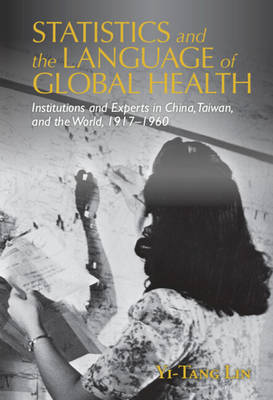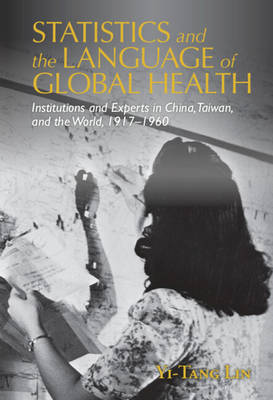
Bedankt voor het vertrouwen het afgelopen jaar! Om jou te bedanken bieden we GRATIS verzending (in België) aan op alles gedurende de hele maand januari.
- Afhalen na 1 uur in een winkel met voorraad
- In januari gratis thuislevering in België
- Ruim aanbod met 7 miljoen producten
Bedankt voor het vertrouwen het afgelopen jaar! Om jou te bedanken bieden we GRATIS verzending (in België) aan op alles gedurende de hele maand januari.
- Afhalen na 1 uur in een winkel met voorraad
- In januari gratis thuislevering in België
- Ruim aanbod met 7 miljoen producten
Zoeken
Statistics and the Language of Global Health
Institutions and Experts in China, Taiwan, and the World, 1917–1960
Yi-Tang Lin
€ 152,95
+ 305 punten
Omschrijving
Yi-Tang Lin presents the historical process by which statistics became the language of global health for local and international health organizations. Drawing on archival material from three continents, this study investigates efforts by public health schools, philanthropic foundations, and international organizations to turn numbers into an international language for public health. Lin shows how these initiatives produced an international network of public health experts who, across various socioeconomic and political contexts, opted for different strategies when it came to setting global standards and translating local realities into numbers. Focusing on China and Taiwan between 1917 and 1960, Lin examines the reception, adaptation, and appropriation of international health statistics. She presents the dynamic interplay between numbers, experts, and policy-making in international health organizations and administrations in China and Taiwan. This title is also available as Open Access.
Specificaties
Betrokkenen
- Auteur(s):
- Uitgeverij:
Inhoud
- Aantal bladzijden:
- 278
- Taal:
- Engels
- Reeks:
Eigenschappen
- Productcode (EAN):
- 9781108845922
- Verschijningsdatum:
- 3/11/2022
- Uitvoering:
- Hardcover
- Formaat:
- Genaaid
- Afmetingen:
- 152 mm x 229 mm
- Gewicht:
- 539 g

Alleen bij Standaard Boekhandel
+ 305 punten op je klantenkaart van Standaard Boekhandel
Beoordelingen
We publiceren alleen reviews die voldoen aan de voorwaarden voor reviews. Bekijk onze voorwaarden voor reviews.









